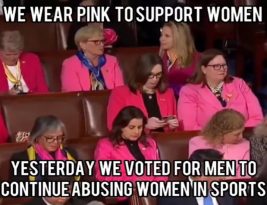Investor’s Business Daily | July 2, 2009
Stimulus: More grim news — 467,000 jobs lost in June, with unemployment hitting a 26-year high of 9.5%. Some people are rightly starting to wonder: Where’s that stimulus we were promised?
The stock market’s reaction on Thursday said it all — with the major indexes plunging 2.4% to 2.9% on the news of a continued job hemorrhage. Despite some economic green shoots here and there, no one’s sure when jobs will start growing again.
At this point in a normal downturn lasting 11 months, the economy should be booming — with big jumps in GDP and 300,000 new jobs each month coming mostly from the private sector.
But 18 months into this downturn, we’re still losing jobs — with 2.7 million gone in the private sector just since January, when the Democrats took full control of the government.
Shrinking GDP has crushed investment. First quarter gross private domestic investment — a proxy for business investment — plunged 20%, or nearly $450 billion, annually. The outlook is grim.
Worse, the June jobs data mark a milestone of sorts: Our unemployment rate equals that of the no-growth Eurozone nations.
Why is this job decline happening? The private sector — the real engine of economic and job growth — won’t hire because it’s scared of what it sees coming out of Washington.
On the horizon, as far as the eye can see, are higher taxes, uncontrolled spending and layers upon layers of new regulations.
Who would hire new workers faced with that?
Also, the federal government is meddling in the private sector as never before — in essence, nationalizing two of the three major carmakers with $200 billion in subsidies and capital infusions, turning our banking system into a fourth branch of government through the $700 billion TARP program, spending $200 billion to take over Fannie Mae and Freddie Mac and put them back in the business of lending to people who can’t pay their loans — which is how we got into trouble in the first place.
And that’s only what’s been done in the last half year or so. What really scares private businesses is what’s in the pipeline.
[…]
Taken together, all these new programs would mean sky-high new taxes, more regulations and the biggest expansion of government since FDR’s New Deal.
That’s not a good thing. Unemployment during the New Deal averaged 17%, and government meddling turned what should have been a garden-variety downturn into a 27% collapse in GDP — the Great Depression.
Washington seems desperate to duplicate that failure.
For some time we’ve heard we need to have “hope” for “change” to come. But hope is fast disappearing, and polls show that Americans reject the change the government has in mind for medical insurance and energy. The grand experiment of government control is failing, and people want their economy back.
As for more jobs, it may be a while. Shortly before the new administration opened for business in January, Americans were told by the incoming administration’s advisers that without the stimulus, unemployment — then at 7.2% — would peak at 9% in 2010. If the stimulus was passed, they added, the peak would be 8%.
Well, it passed — and today unemployment is 9.5% and likely to go higher. A question arises: Given the obvious failure of the stimulus to stimulate anything, why not dismantle the whole thing?
This isn’t so crazy. The Congressional Budget Office estimates that the current stimulus plans will blow a $9.3 trillion hole in the nation’s budget by 2019. That will boost taxes on us and our children for decades to come.
Won’t it also boost the economy? Guess again. “The projection for nominal GDP has decreased (since the end of 2008) by more than $7 trillion, or 3.9%, over (10 years),” says the CBO.
In other words, all this spending and taxing will crater the economy — and the estimate doesn’t include the spending planned for medical insurance reform and cap and trade.
Nor does it include the dizzying array of new taxes the White House and Congress are considering. They range from a European-style value-added tax, which helped turn the EU into a stagnant mess with virtually no job creation, to new taxes on health care, energy, incomes and a slew of other things.
. . . more



